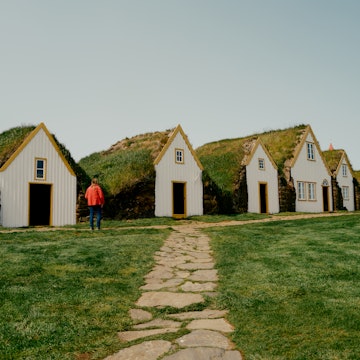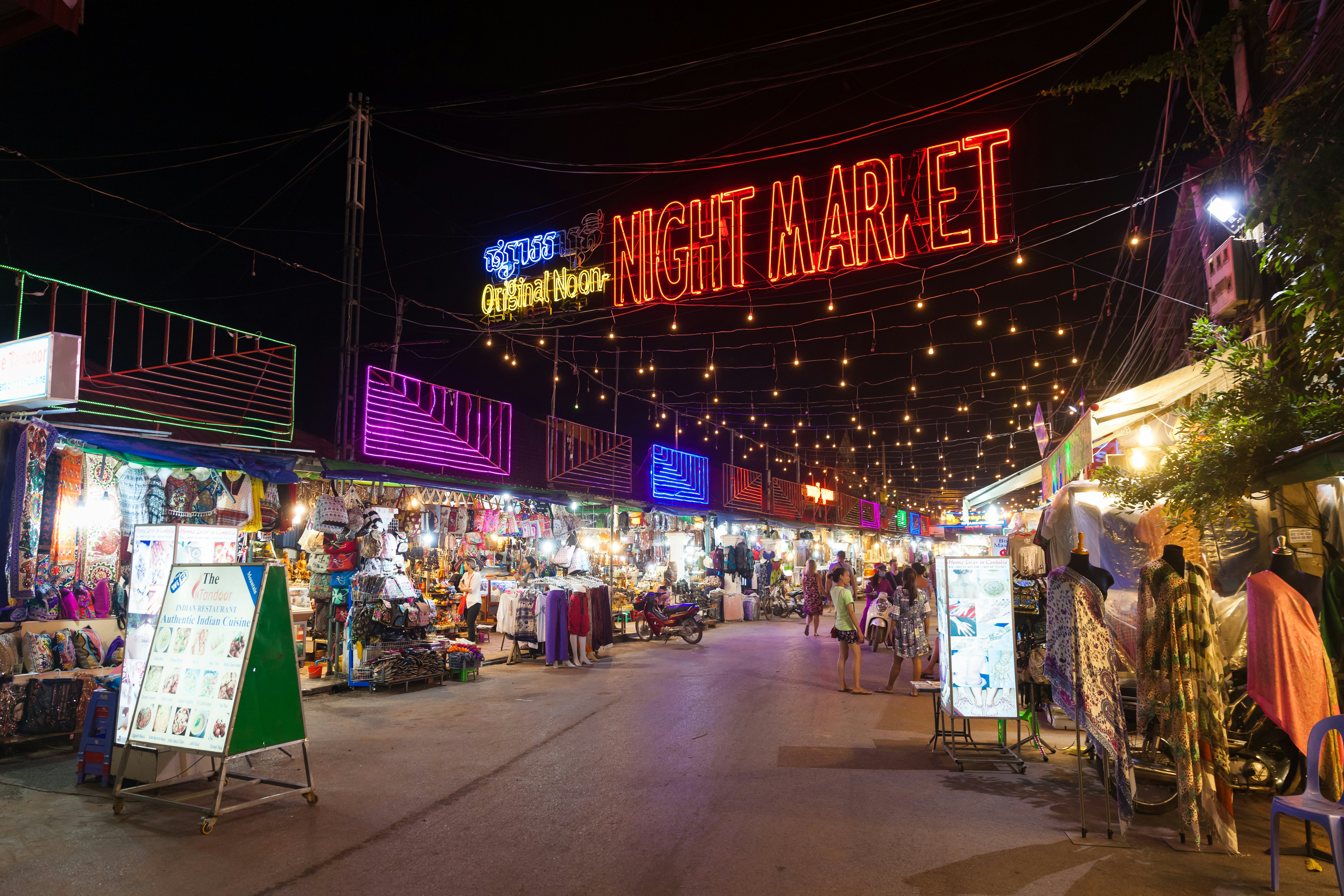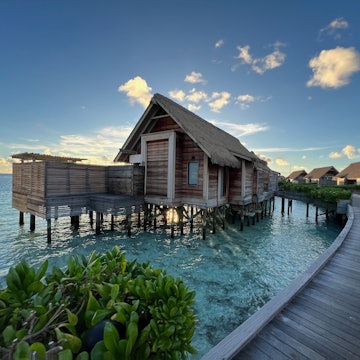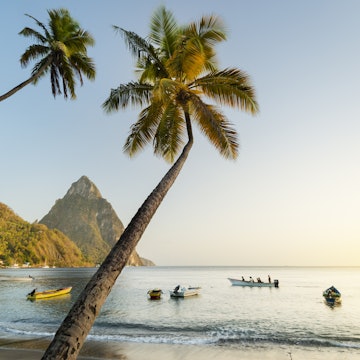

Sihanoukville. Getty Images/Design Pics RF
Nick Ray is the author of the Phnom Penh and Siem Reap chapters of Lonely Planet's Cambodia guidebook, which was published in September 2025.
Cambodia is considered one of the friendliest countries in Southeast Asia. Thanks to an unbreakable spirit and infectious optimism, the Khmers have prevailed. No visitor comes away without a measure of admiration and affection for the residents of this enigmatic kingdom.
General health is more of an issue here than in many other parts of Southeast Asia, due to a lack of international-standard medical facilities, a prevalence of tropical diseases and poor sanitation. Once you venture into rural areas, you are on your own, although most provinces have a reasonable clinic for minor health problems.
Cambodia is generally a very safe country to visit, but occasional crimes and scams do happen, so minimize the risks when possible. This guide can help you plan the essentials for your trip.

Planning for your trip to Cambodia
1. Get your paperwork in order
Make sure that your passport is valid for at least six months, or you won't be allowed to enter Cambodia. Also, check if you need to arrange a visa before your arrival, and purchase travel insurance with decent health coverage and get any recommended inoculations.
2. Familiarize yourself with Cambodia's use of multiple currencies
Cambodia’s official currency is the riel (abbreviated with an r after the number, like 4000r). The US dollar is used as a parallel currency and accepted everywhere, although small change may be returned in riel. To confuse matters more, in towns bordering Thailand, the Thai baht (abbreviated as ฿) is also accepted.
3. Elephant rides are not recommended
Though not yet illegal in Cambodia, elephant rides have been repeatedly called out by animal welfare groups as cruel and painful for the animals, and some private companies are finally rethinking the practice. Do your research to ensure that any animal sanctuary you'd like to visit is ethical and prioritizes the welfare of the animals.

Packing for Cambodia
4. Choose lightweight clothes
Lightweight, loose-fitting casual clothes are best in Cambodia, especially items that are made of cotton or linen to combat the humidity and that are light colored to reflect the sun. Cambodia is not a particularly dressy place, unless you're spending time at high-end bars and clubs in Phnom Penh or Siem Reap, so smart clothes are rarely a necessity. If you are heading to the upland northeast from November to March, pack a warm top for the cool nights.
A few items to tuck into your bag:

Meet your new travel partner
Unlimited data while you travel with Holafly eSIM. Use code LONELYPLANET for an exclusive discount.
Comfortable sandals or shoes
Refillable water bottle
Powerful sunscreen and long-lasting deodorant
Earplugs to block out noise
Unlocked mobile phone for use with a Cambodian SIM card
A light raincoat if traveling during the wet season
5. Then buy a traditional Cambodian krama as soon as you arrive
Purchase a krama, a traditional Cambodian checked scarf, at your earliest opportunity. Locals deploy this deceptively simple piece of cloth in a multitude of ways. The primary use is protection from the sun, dust and wind; you can also use it as a quick cover-up, sarong-style; to towel yourself off after a dip in the hotel pool; and as a makeshift pillow. Essentially, the list is as long as your imagination, and it takes up virtually no space in your bag compared to the multiple equivalent products it dupes.

Etiquette in Cambodia
Cambodian people are very gracious hosts, but there are some important spiritual and social conventions to observe.
6. Use the local greeting when meeting new people
Called the sompiah, the local greeting in Cambodia involves putting your hands together in a prayerlike manner. Use this when introduced to new Khmer friends. When beckoning someone over, wave toward yourself with your palm down.
7. Always be respectful at Buddhist sites
When visiting temples, cover up to the knees and elbows, and remove shoes and any head covering when entering temple buildings. Sit with your feet tucked behind you to avoid pointing them at images of the Buddha. It's also good to leave a small donation. Women should never touch a monk or his offering bowl – the Buddhist faith believes it is contrary to a monk's sacred vows to be near a woman who isn't a relative.
8. Generally dress conservatively everywhere
Avoid wearing swimsuits or scant clothing around towns in Cambodia, even in beach destinations. Wear a sarong or krama to cover up.

9. Bargaining is expected in markets and for transportation
Negotiation is the rule in markets and when arranging shared taxis and local transportation, such as a tuk-tuk, in person and not via a ride-hailing app. The Khmers are not ruthless hagglers, so a persuasive smile and a little friendly quibbling are usually enough to agree upon a price.
10. Tipping is appreciated
Tipping is not essential but is commonplace in establishments catering to tourists, such as hotels and restaurants, and it is standard practice to tip tour guides and drivers on organized tours.

Safety in Cambodia
11. Plan for emergencies
Do not visit Cambodia without medical insurance. Hospitals are very basic in the provinces, and anyone who has a serious injury or illness while in Cambodia may require emergency evacuation to Bangkok. If you fall seriously ill in Cambodia, head to Phnom Penh or Siem Reap. They're the only places in the country with decent emergency treatment.
Pharmacies in the larger towns are remarkably well stocked, and you don’t need a prescription to get your hands on anything from antibiotics to antimalarials. There is quite a lot of fake medication floating about the region, so only buy prescription drugs from reliable pharmacies or clinics.
Be very careful if you are offered chemical drugs on the street in Cambodia, as they are not only illegal but may be laced with dangerous toxic substances.
12. Stay on marked paths
Due to the presence of landmines and unexploded ordnances (UXOs) in some rural areas, it is essential to stick to marked paths. Keep a close eye on small children in rural areas to make sure they don't stray, and do not go off-road if you're cycling.

13. Drive carefully, if at all
Although motorcycles are a popular way to get around in Cambodia, do not attempt it if you're not an experienced driver. The tangled traffic in the big towns and cities is no place for a novice.
Roads have improved massively in recent years, but conditions can vary widely from the dry to the wet season.
14. Drink bottled water
When it comes to tap water, play it safe and avoid it if possible. Bottled water is widely available in Cambodia, and many hotels and guesthouses have refill tanks. Ice is generally fine to use, as it is produced in bottled water factories around the country, a legacy of the French colonial period.
15. Be alert to scams and aware of your surroundings
Most scams are fairly harmless, involving a bit of commission here and there for local drivers. There have been one or two reports of police setups in Phnom Penh involving planted drugs, but these seem very rare and usually involve business owners. Beware the Filipino blackjack scam – don't get involved in any gambling with seemingly friendly folks unless you want to part with plenty of cash.
The most common crime is bag or mobile phone snatching, usually perpetrated by thieves on motorcycles. Smartphones are a particular target, so avoid using your phone on the side of the street, especially at night.
Walking or riding alone late at night is not ideal, as there have been several incidents of solo travelers being assaulted in isolated areas, usually after dark.














